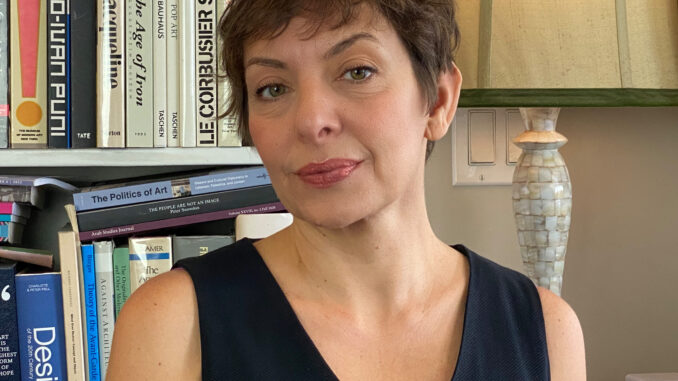
By Kate Dempsey
In partnership with the Muslim Women’s Leadership Development Project (MWLDP) and the Brooklyn College Exchange, the Women’s Center hosted a teach-in titled “Gaza is Palestine: On Bakers and Storytellers” on Tuesday, Feb. 27.
Dr. Sherene Seikaly, the event’s keynote speaker and an associate professor of history at the University of Santa Barbara, serves as the director of the Center for Middle Eastern Studies at UCSB, and she is the co-editor of the Journal of Palestine Studies. The teach-in on Gaza was co-sponsored by Students for Justice in Palestine (SJP), Muslims Giving Back (MGB), Bridges for Yemen, CUNY Faculty and Staff for Justice in Palestine (FSJP), the Student Coalition for Campus Justice, and a committee of ad-hoc professors at BC.
“The process was that an ad-hoc committee came together to fill the gap in campus discourse about what is happening in Gaza from the perspective of a historian of Palestine,” Naomi Schiller, an associate professor of anthropology at BC, said. “The theme of bakers and storytellers speaks to the struggle for Palestinians in Gaza to survive.”
“On Bakers and Storytellers” highlighted the everyday work that people in Gaza continue to do in the midst of the destruction of the Gaza Strip; for bakers, that means continuing to try and make food even as most infrastructure has been destroyed. Despite the destruction, they find strength through their struggle.
“I’ve been gathering images and videos of bakers […] In their struggles for the basics of life, we find so much else: confidence, courage, humor, cunning, steadfastness,” Seikaly said.
The teach-in discussed the current humanitarian crisis in Gaza. As of Feb. 29, a total of over 30,000 have been killed, and 2.3 million Gazans face starvation, according to the Associated Press.
“Every day is the worst day. ‘The earth has narrowed,’ said a Palestinian man in Rafah last week. He had taken refuge with his family in Nasser Hospital, one of the last remaining hospitals in the Gaza Strip. A hospital that, today, Palestinians are using to bury their dead,” Seikaly said.
Seikaly discussed “epistemicide,” a policy that “mandates the destruction of cultural and historical sites, libraries, bookstores and the killing of educators.” The destruction of many Gazan educational and historic sites means the destruction of who Gazans are as a people.
“Knowledge, too, is a target in Gaza,” Seikaly said. “An estimated 70% of Gazan schools have been reduced to rubble […] Every single one of Gaza’s 11 universities, including Al-Aqsa University and the Islamic University of Gaza, are in ruins. 76 cultural centers, three theaters, five museums, 15 publishing houses and bookstores, 80 public libraries.”
One of the Women’s Center’s goals in hosting the event was to heed student calls for more open discourse about the current state of Gaza to foster better understanding across campus about the crisis.
“As the Women’s Center, we are very student-centered. Whatever needs the student express, we work with them to make it happen,” Iqura Naheed, project coordinator of MWLDP, told The Vanguard. “Students expressed to us that they wanted a teach-in and a way to talk about what’s going on in the world from a knowledgeable, academic perspective. Our goal was to host this conversation and role model how we can listen to each other and gain perspective.”
According to Seikaly, students can take advantage of their studies to move to the forefront of change. Through learning about the Palestinian struggle, many can join in solidarity as they find strength through their unwavering fight to live another day.
“I think one of the reasons that students are always on the front lines of imagining a better world is precisely because we are immersed in those kinds of studies,” Seikaly said. “As we struggle with this condition of the permanent temporary, and of a present suspended in time, we learn from the Palestinians who make life amidst the certainty of death.”
